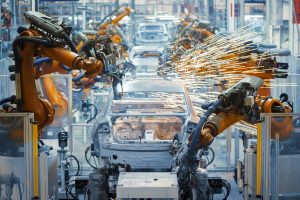
Did you know that a car is held together with about 7.500 fasteners? Fasteners are a key part of a vehicle’s design and a major factor in ensuring its safety as well as its aesthetics. In this article, we will take a closer look at the different typologies and requirements of fastening solutions for the automotive industry, a sector where innovation is always the number one priority.
The importance of fastening for the automotive sector
We have already mentioned the connection between fasteners and safety. When a fastener is loose or improperly installed, it affects the entire car. For example, a loose bolt in the engine can prevent the car from starting, while problems in the suspension or braking system can cause serious failures. Or, more commonly, a damaged fastener can cause vibration or noise in the passenger compartment.
Fastening systems are found in all major automobile components. They serve to join various elements, from engine parts to body finishes. There are many different types of automotive fasteners – bolts, screws, nuts, rivets – sometimes even custom-made for a specific model. Materials can also vary: iron, stainless steel, nickel, brass, aluminum, or special alloys.
Some of the most popular solutions include:
- Threaded inserts. Used to create a threaded seat within a material. Whether it is metal parts, laminates, or plastic elements, there are specific threaded inserts for different applications. For example, our DEFORM-NUT® allows you to create a threaded seat on thin metal sheets in a simple and safe way.
- Bolts. Generally with a hexagonal head, they are used among other things to fix the rims, so as to ensure the anchorage of the wheels to the rest of the car.
- Nuts. They ensure the fastening of bolts and screws to a given surface.
- Washers. Small flat discs with holes in the center, they are used to secure bolts in order to prevent leaks, distribute pressure, and fix radiators.
- Press-in inserts. When you need solutions that are easy to install and can support the required load, this type of fastener offers many advantages.
- Bonding fasteners for composites. They consist of a flat perforated or blind base with round spacers and a fixing element: pins, bushings, or nuts assembled on a wide range of plates with different shapes and sizes. There are through or blind solutions for every need.
In the field of automotive engineering, continuous research has led to the development of new technologies and materials, for example the use of composite materials such as carbon fiber. In this direction, our MASTER-PLATE® bonding system is the safest, most reliable, and versatile answer for bonding to any composite material, including carbon fiber.
Today the automotive sector can benefit from solutions that make vehicles increasingly safe and innovative in terms of design. Specialinsert® is a major player in this field with technologically advanced fastening systems such as DEFORM-TI®, the titanium threaded tubular rivet nut that combines light weight with high resistance to traction, shear, and corrosion. Another innovation is the self-locking DEFORM-NUT®, our patented deformable insert that provides vibration-resistant fastening.
In 2018, we achieved certification of our quality management system according to the automotive industry standard IATF 16949:2016. Many automotive companies rely on us, such as Dallara Stradale, excellence of made in Italy with which we share a long-standing partnership.
Our field application engineers can offer expert advice for the automotive industry, working with customers to identify the best fastening solutions for each project. Contact us to learn more.




